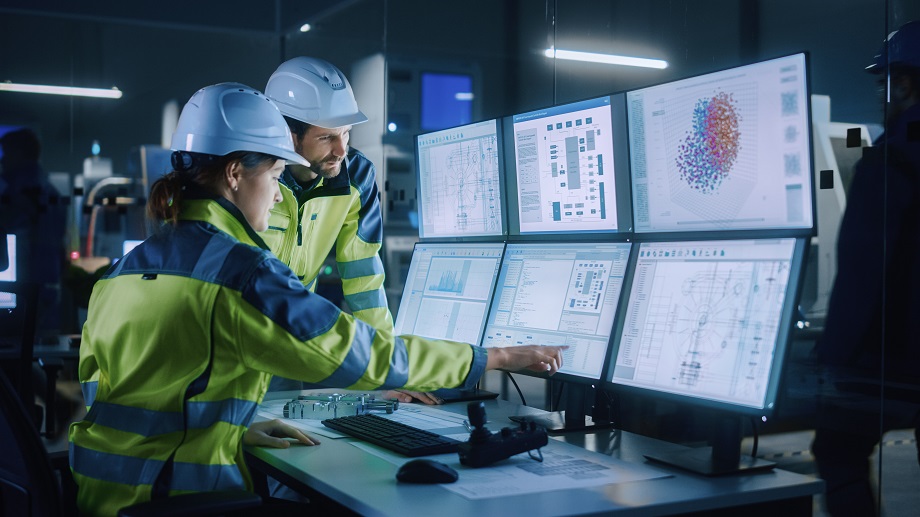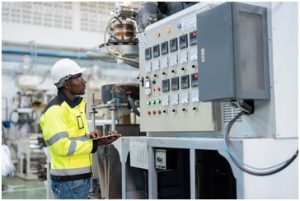
Instrument and control systems technology play a significant role in today’s processing and manufacturing facilities. From chemical products to textiles, companies must maintain excellence in their production operations to generate the highest quality parts and products.
Instrument technicians and plant operators work with the implementation, monitoring, maintenance, and optimization of their control systems. They navigate through every component and area of their systems to improve production efficiency and stay on top of their competitors.
The keys to operational excellence are employing the most modern instrument and control systems technology and the best-trained workers. The U.S. faces highly competitive global organizations and must ‘up their games’ to meet customer and consumer demands.
Excellence In Control Systems Is A Goal In These Industries
The significance of instrument and control systems can’t be overestimated. The top twelve U.S. industries today that depend on high-efficiency control systems include:
|
|
|
|
|
|
|
|
|
|
|
|
According to the National Institute of Standards and Technology (NIST), manufacturing contributed $2.3 billion to the U.S. gross domestic product or 12.0% of the total U.S. GDP in 2021. In the same year, there were 14.7 million employees in U.S. manufacturing. All these industries and employees depend on strong instrument and control systems in their production, processing, and assembly operations.
Implementation Excellence In Control Systems
 U.S. manufacturing and processing facilities know they must use the best control system technology they can afford. The most advanced control systems implemented today include:
U.S. manufacturing and processing facilities know they must use the best control system technology they can afford. The most advanced control systems implemented today include:
- Programmable Log Controllers (PLCs) have programmable memories for storing instructions to generate specific functions.
- Distributed Control Systems (DCS) control various distributed systems individually
- Supervisory Control and Data Acquisition (SCADA) gathers and processes data and applies operational controls over long distances.
- Remote Terminal Units (RTUs) are electronic devices used to connect different hardware to distributed control systems.
- Industrial Automation and Control Systems (IACS) provide solutions that involve safe infrastructure for information transfers.
- Programmable Automation Controllers (PACs) are any automation controller that works with higher-level instructions including equipment sensors and infrastructure.
- Intelligent Electronic Devices (IEDs) are electronic components that have microprocessors that can communicate digitally with industrial protocols.
Using the best combination of these control systems promotes excellence in the production, processing, and/or assembly of products. Once implemented, systems must be routinely and expertly monitored.
| “From chemical products to textiles, companies must maintain excellence in their production operations to generate the highest quality parts and products.” |
Monitoring Control Systems
 Once instruments and control systems are purchased and implemented, they must be monitored and maintained for peak efficiency. The goal is regularly to observe them to maintain peak production while preventing a slowdown or breakdown in production.
Once instruments and control systems are purchased and implemented, they must be monitored and maintained for peak efficiency. The goal is regularly to observe them to maintain peak production while preventing a slowdown or breakdown in production.
The latest trend in control systems technology is interconnectivity with other industrial systems. This advance makes them more vulnerable to internal and external influences that must be monitored. Any change in the connected networks can lead to a restriction or a complete shutdown of operations.
An excellent way to monitor instruments and controls is using network visibility intelligence technology that can accomplish several goals, including:
- Maintaining peak production
- Avoiding risks
- Enhancing IT operations
- Dealing with security issues
Companies that employ the best-trained technicians are the most successful at monitoring their instruments and control systems technology.
Optimization In Control Systems Excellence
The Oxford Dictionary defines optimization excellence as “the action of making the best or most effective use of a situation or resource.” In the case of control systems, it is a two-fold explanation. Production optimization is designed to increase productivity in the production system. Process optimization is focused on making the finished product more efficient in its stages.
According to Machine Metrics, both production and process optimization in instrument and control system excellence are achieved by:
- Identifying problems specific to the production or process
- Analyzing the current state to create the desired state
- Auditing the change to see the results
- Monitoring the change to keep it on track
Companies that practice these four steps can achieve their potential in control optimization.
How To Prepare For A Control Systems Career
To make the most of an instrument and control system technician or operator career, you need to earn an associate degree in this program. ITI Technical College in Baton Rouge teaches the principles and skills to secure an entry-level job in this field. We invite you to explore our Associate of Occupational Studies (AOS) Degree and meet with an enrollment representative. Call us today at (877) 591-1070 for more information about all our programs!
For more information about graduation rates, the median debt of students who completed the program, and other important information, please visit our website: https://www.iticollege.edu/disclosures

